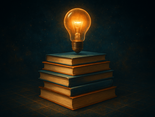top of page

Explorations in Science and AI


The AI Physicist reaches its first autonomy milestone (ahead of schedule)
The team at FirstPrinciples has reached the AI Physicist’s first autonomy milestone ahead of schedule, assembling the early loops of a system that will guide its own scientific reasoning from research to hypothesis and beyond.


The AI Physicist reaches its first autonomy milestone (ahead of schedule)
The team at FirstPrinciples has reached the AI Physicist’s first autonomy milestone ahead of schedule, assembling the early loops of a system that will guide its own scientific reasoning from research to hypothesis and beyond.

FirstPrinciples
Dec 9, 2025


Colin Hunter
Jul 29, 2025


Matt von Hippel
Jun 18, 2025


FirstPrinciples
Jun 11, 2025


FirstPrinciples
Jul 4, 2024


The AI Physicist reaches its first autonomy milestone (ahead of schedule)
The team at FirstPrinciples has reached the AI Physicist’s first autonomy milestone ahead of schedule, assembling the early loops of a system that will guide its own scientific reasoning from research to hypothesis and beyond.

FirstPrinciples
Latest Articles


How string theory lost its strings
String theory was once hailed as the “theory of everything” — a unified model of nature built on tiny vibrating strings. But after decades of expansion, the field has evolved beyond its namesake, embracing branes, dualities, and abstract geometry. Some physicists now wonder: is it time to rename the theory entirely?
Colin Hunter
Jul 3, 2025


Artificial intelligence: A FirstPrinciples Primer
What is AI? From symbolic logic to large-scale neural networks, we're unpacking how today’s systems learn, generate, and reason alongside the the misconceptions and challenges of applying AI in science and society.

FirstPrinciples
Jun 25, 2025


How the Sloan Foundation picks scientific winners
Sloan Foundation president Adam Falk is stepping down this year after seven years leading the iconic organization. He spoke with FirstPrinciples about how the foundation’s philosophy has given it an outsized impact on scientific progress.

Matt von Hippel
Jun 18, 2025


Prediction isn’t understanding: AI’s evolution and the soul of science
From rule-based ‘expert systems’ to neural networks, AI has long chased the dream of scientific reasoning. But while today’s models are good at pattern matching and can generate code or summarize academic papers, they struggle with the heart of scientific discovery: structured reasoning.

FirstPrinciples
Jun 11, 2025


Engineering the implausible? Paper explores stable Dyson spheres and ringworlds
Artificial structures surrounding an entire star were thought to be impossible. A new calculation shows that they could be supported by the gravity of a second star.

Matt von Hippel
May 29, 2025


An excerpt from Battle of the Big Bang: The New Tales of Our Cosmic Origins
Astrophysicist Niayesh Afshordi and science communicator Phil Halper explore theories—from black holes birthing universes to the end of cosmic singularities—in a sweeping narrative that challenges the Big Bang orthodoxy.

FirstPrinciples
May 22, 2025


The Conjecture That Gravity Might Always Be Weak
In 2006, a group of physicists proposed a bold idea: that gravity must be the weakest force in any consistent theory of quantum gravity. Almost twenty years later, this so-called Weak Gravity Conjecture remains unproven, but the research it inspired continues to raise deep questions.

Matt von Hippel
May 15, 2025


Janna Levin’s creative cosmos: navigating multiple dimensions in science and art
Even Janna Levin, once dubbed the “chillest astrophysicist alive,” is abuzz with energy about “magical” collaborations, both scientific and artistic.
Colin Hunter
May 7, 2025


Quantum Gravity: The Quest to Unify Physics' Fundamental Forces
For more than a century, physicists have struggled with an uncomfortable truth: the two pillars of modern physics fundamentally contradict each other.

FirstPrinciples
Apr 30, 2025
Become a contributor for the Hub
Share your thought-provoking content with our community of curious minds.

bottom of page














